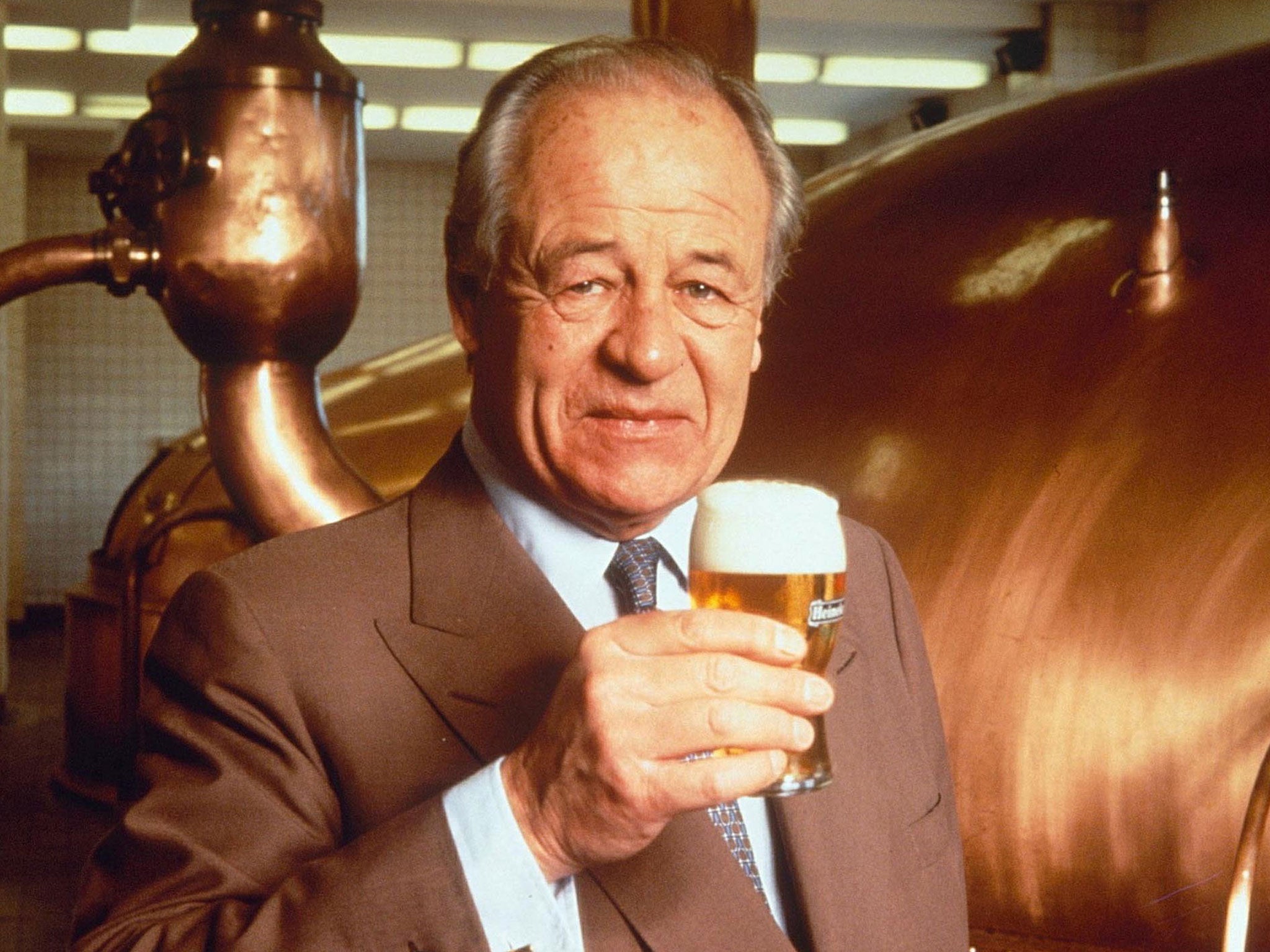Dutch beer magnate ‘was not a true Heineken’ despite transforming Dutch brewing company into global brand
Freddy Heineken's grandmother had an affair with a socialite, claims biographer

Your support helps us to tell the story
From reproductive rights to climate change to Big Tech, The Independent is on the ground when the story is developing. Whether it's investigating the financials of Elon Musk's pro-Trump PAC or producing our latest documentary, 'The A Word', which shines a light on the American women fighting for reproductive rights, we know how important it is to parse out the facts from the messaging.
At such a critical moment in US history, we need reporters on the ground. Your donation allows us to keep sending journalists to speak to both sides of the story.
The Independent is trusted by Americans across the entire political spectrum. And unlike many other quality news outlets, we choose not to lock Americans out of our reporting and analysis with paywalls. We believe quality journalism should be available to everyone, paid for by those who can afford it.
Your support makes all the difference.Freddy Heineken’s drive to succeed was so strong that in the space of a few decades he transformed his grandfather’s modest Dutch brewing company into a global brand.
Now, a book claims that while he may have had the family name, he did not have the family blood, and it was a desire to do justice to the Heineken name that helped to fuel Freddy’s ambition.
Annejet van der Zijl, a Dutch writer, came across the revelations while working on an authorised biography of the brewing empire’s founder, Gerard Heineken.
She was given access to the family archives, but found “a hole where he should have been”, she told The Independent. So she turned to other sources, and evidence emerged that Gerard’s wife, Mary Tindal, had an affair with a socialite called Julius Petersen.
While Gerard – who brewed the first Heineken in 1864 – was busy with his business, family friend Petersen seduced Tindal. The product of that affair was Freddy’s father, Henry Pierre, Ms van der Zijl says.
After initial reluctance to acknowledge the boy, Gerard raised Henry Pierre as his own. But his parentage cast a shadow over the boy’s youth. “Henry Pierre was a very unhappy man and didn’t like company,” says Ms van der Zijl.
When Gerard died in 1893, Petersen married Tindal and took over the company. When Petersen died too, Henry Pierre, after briefly running the company in the 1940s, sold the family stake.
It took the next generation to restore the Heineken name. Aware of the skeletons in the family closet, Henry Pierre’s son, Freddy, nevertheless decided in 1954 to buy back the shares his father sold and make the company great again, Ms van der Zijl says.
She believes it was in part the knowledge of his tangled family background and his father’s struggles that fuelled his desire to succeed.
“I got the impression that he had a huge drive to make Heineken a successful company once more – he was very proud of the name Heineken,” she said. And while he may not have his grandfather’s blood, “he had the same talent in business... he made it into the company it is today”.
Freddy died in 2002 aged 78, and by then had turned Heineken into one of the world’s best-known brands.
In 1983, he was kidnapped, along with his driver. The men were chained for weeks before the family paid a ransom.
He largely shunned the public eye afterwards, and his daughter and heir, Charlene de Carvalho-Heineken, has done the same.
Join our commenting forum
Join thought-provoking conversations, follow other Independent readers and see their replies
Comments